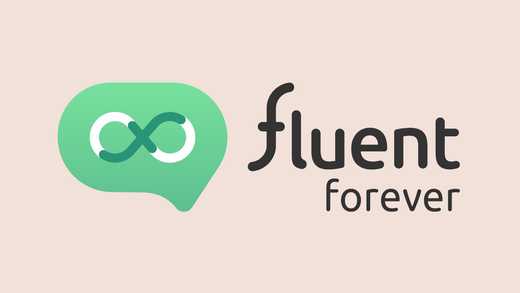Fluent Forever Review: Decent App With Room For Improvement
 Written byJohann Brennan
Written byJohann Brennan- Read time1 mins
- Comments0


- Non-explicit approach to grammar
- Image association rather than translation-based
- Affordable
- Little that's innovative about its method
- Unconfirmed reports of mistakes in the content
- Uninspiring app doesn't live up to hype
Fluent Forever is a solid app that has been widely popularized by its bestselling book and well-known author, Gabriel Wyner. It is certainly erroneous and unfair to label Fluent Forever a 'method' however, as its methodology (though indeed being research-based) is anything but unique.
The Fluent Forever app is comprehensive in what it does for the languages it offers.
In this brief review, I want to share my thoughts on Fluent Forever, the brainchild of polyglot, singer and bestselling author, Gabriel Wyner.
The app is essentially a materialization and upsell of the popular book into a practical tool for at-home learners of foreign languages.
While the book received immense praise over the years following its release, this was (I feel) due in part to a very successful marketing and self-promotion campaign (see the TEDx talk below).
There was nothing groundbreaking about the ideas put forth in the book.
The reality is: Fluent Forever re-introduced fairly well-known concepts that have been implemented to some extent in many different apps and courses over the years (e.g. Rosetta Stone image associations, Pimsleur’s spaced repetition, and Memrise’s mneumonics).
Not to say it’s a bad thing (these are research-proven points), but it’s unfair that Fluent Forever has been labeled a “method” (this would imply it’s doing something new).
I’m inclined to think of it primarily as “yet another take on flash cards”.
Fluent Forever review conclusion
Overall, I found Fluent Forever to be a solid and comprehensive app for the languages it offers. Currently:
- Both Latin American and Castillian (European) Spanish
- French
- German
- Italian
- Portuguese (Brazilian)
- Russian
- Mandarin
- Korean
- Japanese
They also claim to be working on releasing Arabic, Hebrew, English and Dutch soon.
It’s an affordable app (only about $10 a month) and it goes well beyond the basics to higher content than you would find on competitor apps like Babbel and Duolingo.
 Grab the link to this article
Grab the link to this article